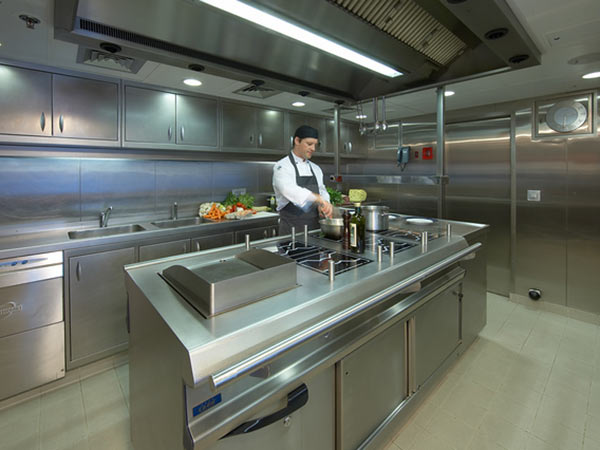Chef job description

Food is one thing that a charter guest or an owner of a superyacht will always remember. The Chef plays an incredibly important role and is one of the key figures on board.
The position of Chef is challenging in every sense of the word. From the initial purchase of the food items, transportation to the yacht, (changing money and languages in between), to the preparation and final presentation on the table – it’s all in a day’s work for the Chef. The typical work day will be incredibly long – not only does this job entail purchasing stores and cooking, but it also involves enormous amounts of preparation and clean-up to ensure that the galley is kept in pristine condition. Depending upon the size of yacht, a Chef may work solo, or he/she may work with a Sous Chef and possibly a Crew Cook. On the other hand, it may be the Chef’s responsibility to provide all meals to both guests and crew.
A great Chef has enormous breadth to his/her cooking repertoire. From the basic to the exotic, you must be able to create inventive and balanced menus with sometimes scarce supplies. Special menus and varied dietary requests are not uncommon.
On smaller yachts it is not unusual for chefs to participate in the deck work and watch keeping duties when there are no guests on board.
Required Skills and Experience
Most superyacht Chefs have previous experience of working as a head or sous chef in a hotel, restaurant or on board other yachts.
You must have excellent knowledge of food safety, storage, general health standards, and nutrition. A good Chef should be flexible and able to perform gracefully under pressure! Your culinary repertoire should be excellent, to take into account the sometimes limited availability of produce and necessary menu changes due to unforeseen circumstances on board. You should have a vast knowledge of fruits, dairy, meats, seafood and other products available only seasonally and perhaps limited by geographical region, as well as being able to cater to restricted diets, fad diets and food allergies.
The Chef must also be very well organised and able to adhere to budgets, plan menus based on monetary restrictions and manage the galley staff if applicable.
Required Certification
Although not mandatory, most Chefs hold a recognised qualification such as a Level 3 Diploma in Professional Cookery (City and Guilds), Level 3 S/NVQ Professional Cookery (City and Guilds) or other industry-recognised international qualification. If not officially trained, substantial restaurant and Chef experience is a must.
MCA STCW Basic Safety Certification is often considered essential for this role.
Salary Range
The starting salary for a Chef on board a superyacht typically starts at between £1,750 to £2,250 per month. This could increase to £2,500-£4,000 per month with experience, and the top Chefs could earn upwards of £5,000 per month.
Career Progression
Superyacht Crew
Top-end superyachts generally provide the most challenging environment for on board chefs, and usually are only taken on with previous superyacht chef experience.
Marine Industry
Career options for chefs in the wider maritime industry are mostly restricted to other crew jobs, for example the Merchant Navy or the holiday/charter companies.
Other Industries
The Hospitality, Hotel and Catering industries all need experienced chefs to work in a variety of environments.
